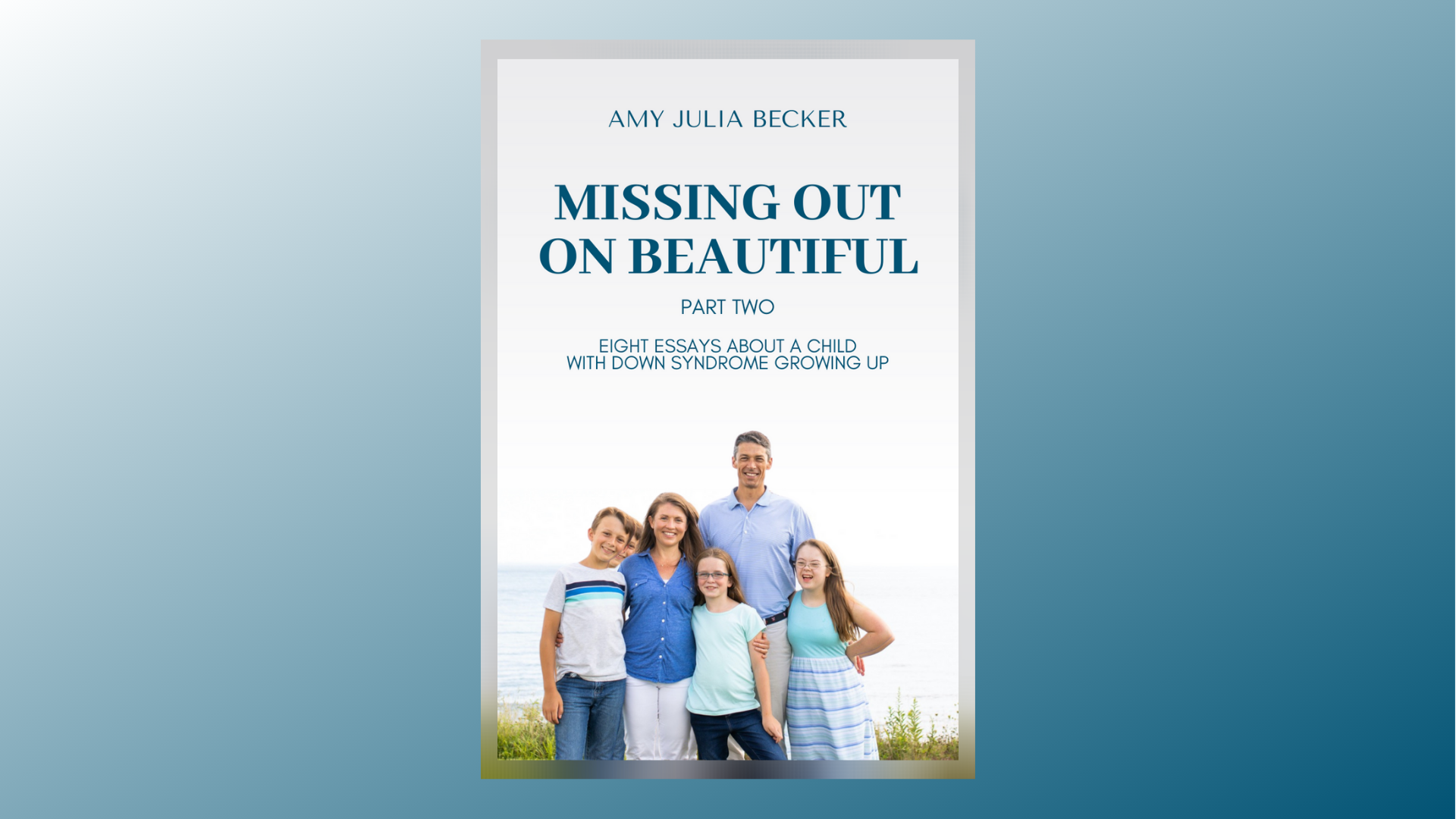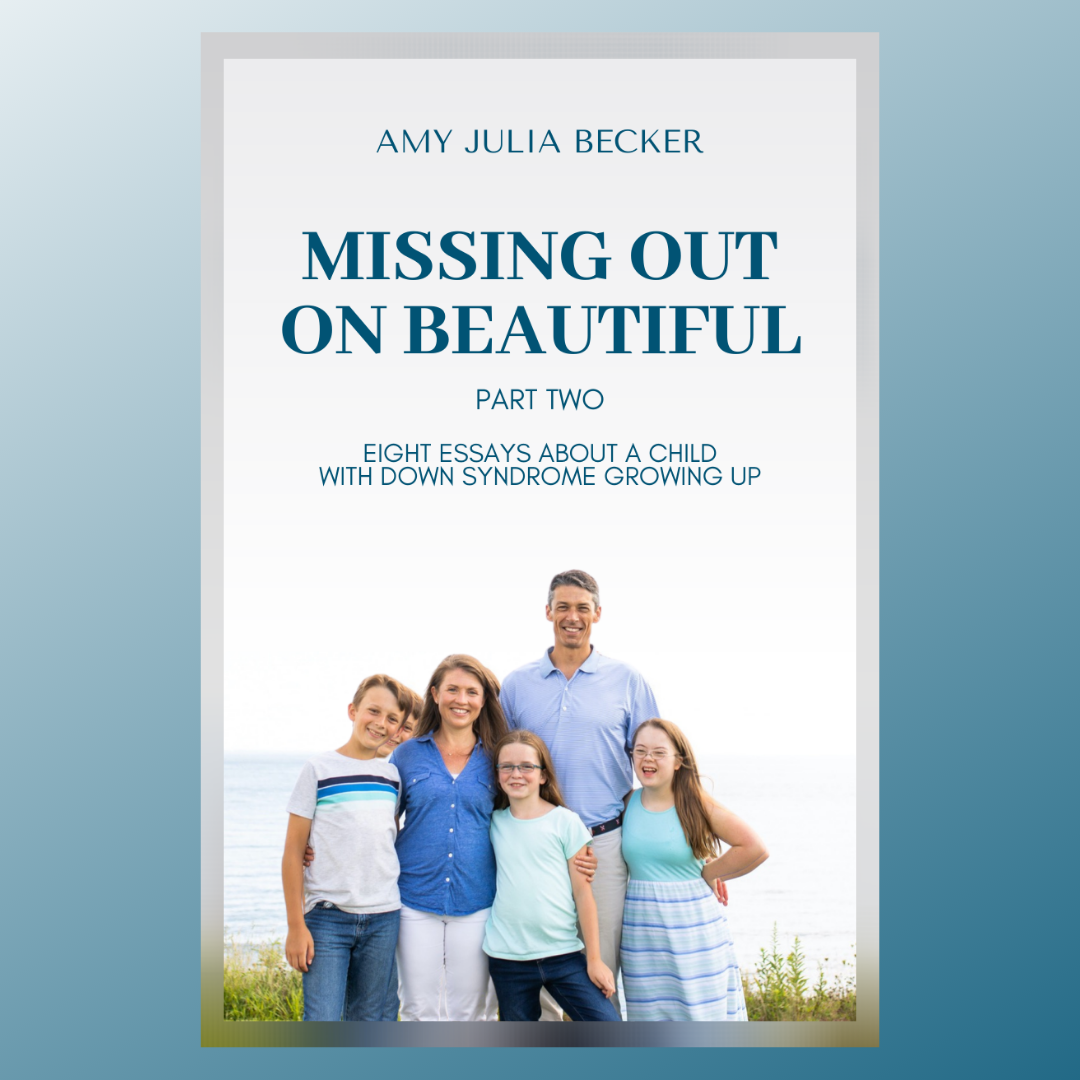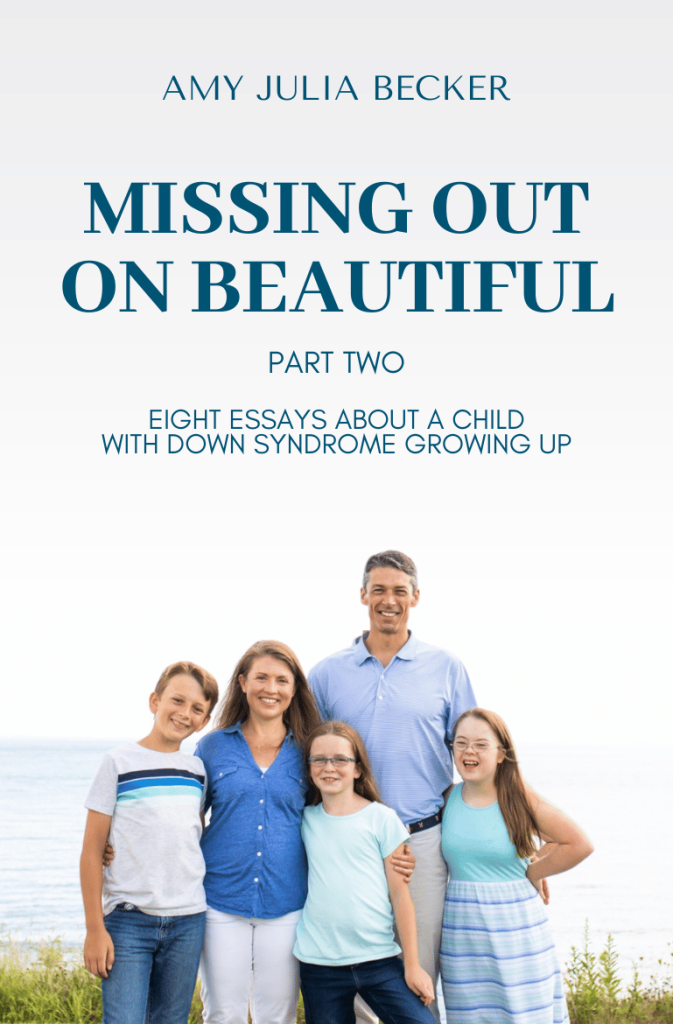
Our daughter Penny was born on December 30, 2005. She was diagnosed with Down syndrome a few hours later. It’s almost hard to remember what it felt like to hold her as a new baby—in all her beauty and vulnerability—and to hold the grief and fear that came alongside the love. As I write in one of the essays compiled in Missing Out on Beautiful, Part Two, one of the great gifts Penny has offered me is the gift of trusting that love is stronger than fear.
Penny has helped me believe that when we surrender to love and give love space to grow, it will overpower and overturn fear. Fear shrivels us up into ourselves. Love expands us.
I’ve written tens of thousands of words about our experience as parents of a child with Down syndrome over the years. The first, and longest, came in A Good and Perfect Gift, my memoir which describes the first few years of Penny’s life and how we came to receive her as a gift. A Good and Perfect Gift was published in 2011, but Penny continued to grow up, and I continued to write. So in 2017, I compiled six essays I had written—as well as an interview with 11-year old Penny—in an e-book called Missing Out on Beautiful (available on my Resources page).
Now, in the fall of 2020, as we celebrate Down Syndrome Awareness Month, I’ve put together another e-book that offers what I consider the “best” of the dozens of essays, blog posts, and reflections I’ve offered. These essays reflect our family’s experiences while Penny was in middle school, and you’ll hear from me but also from Penny and from her siblings about the challenges and gifts of our life together.
What strikes me as I look at these essays and reflections side by side is how much we’ve moved from the realm of our personal space and into the public space. This collection of thoughts speaks to the significance of community—dance teachers, schoolteachers, churches, friends, and even acquaintances—who help to create a space not just of inclusion but of belonging for Penny and for our family. That’s my hope, for Penny and for all the kids and adults who have been pushed to the margins of our society—that we would learn to become interdependent communities that welcome the beauty and gifts we have to offer one another, communities where everyone belongs.
To learn more with Amy Julia in thinking about disability and the built world and belonging:
- Love is Stronger Than Fear | Season 3—White Picket Fences
- Places of Belonging Webinar
- Teaching Students About Inclusion and Belonging
If you haven’t already, please subscribe to receive regular updates and news. You can also follow me on Facebook, Instagram, and Twitter, and you can subscribe to my Love is Stronger Than Fear podcast on your favorite podcast platforms.





